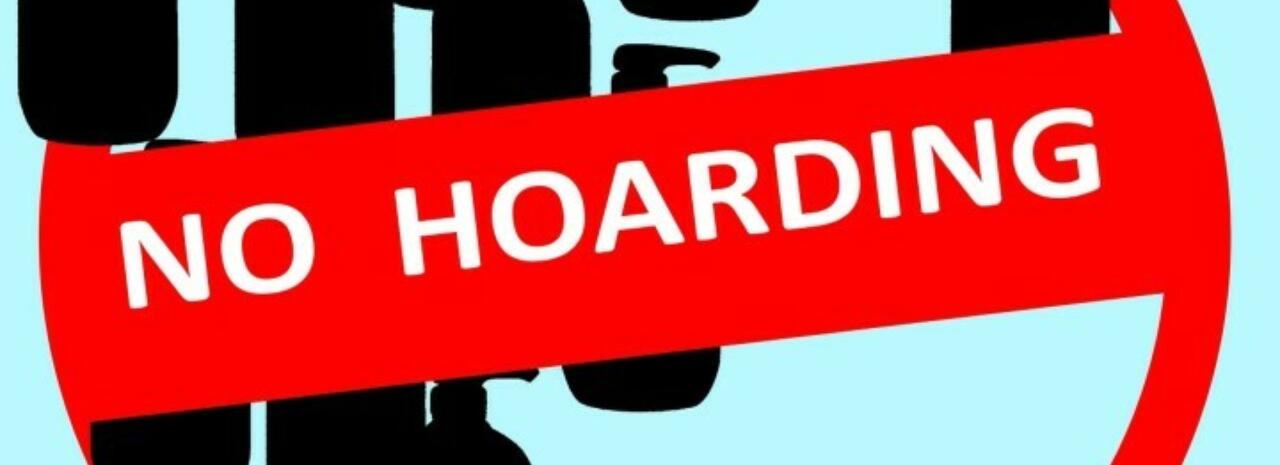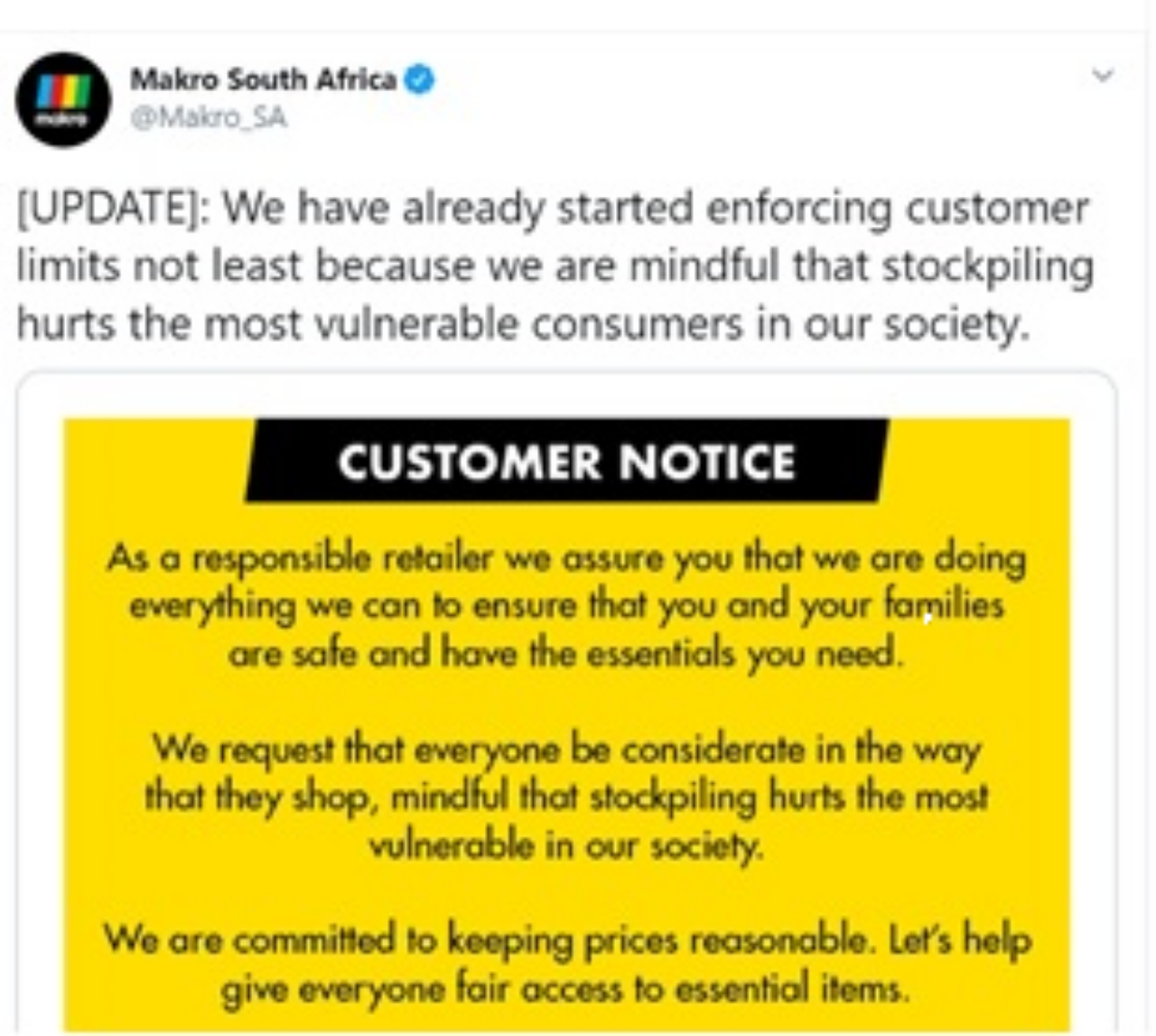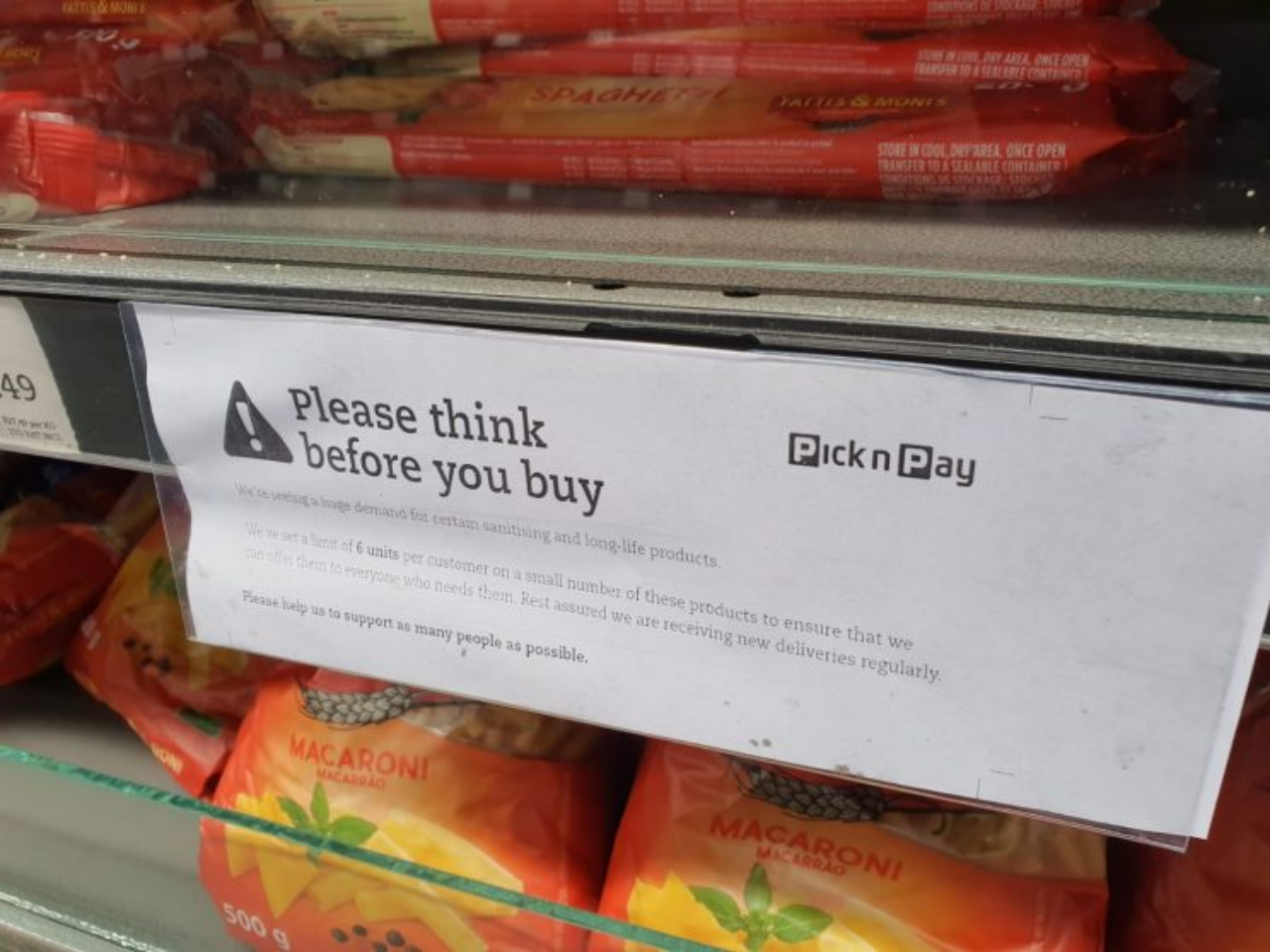
Stockpiling: is it really that irrational?
1 July 2020
COVID-19
The COVID-19 pandemic has changed everyday life as we know it. Perhaps the first behaviour to change was our shopping. Amidst rumours of lockdown, South Africans began hoarding items such as toilet paper and food staples in fear that they might run out, leaving shelves of numerous convenience stores barren. The CEO of Tiger Brands, Noel Doyle, noted a 60% increase in pasta purchases around the announcement of the lockdown. The panic that set in among shoppers all over the country (and the world) was a clear marker of just how uncertain and fearful people were becoming about their future.
Grocery stores were at pains to communicate that there would be sufficient stock available throughout the lockdown, so behavioural economists such as Wandile Sihlobo, the chief economist of the agricultural business chamber of South Africa have been vocal about the irrationality of this behaviour. Why behave, the argument goes, as if your toilet paper is about to run out when this is not the case? Why rush into a store packed with people and increase the risk of contracting COVID-19?
This irrational behaviour stems from two related concepts. First, the fear of the unknown drives people to panic buy. This is reinforced by the herd effect: people see that others are stockpiling and copy this behaviour because of their uncertainty. Clearly, supermarkets are a potential hotspot for infection, but buying groceries in large quantities means people can stay at home for longer and continue to social distance.
Behavioural economists like to identify the mental shortcuts people take when making decisions and point to the negative consequences they have, yet this misses an important point about why we take mental shortcuts (like copying the behaviour of others). As Daniel Kahneman pointed out in his famous book Thinking Fast and Slow, we do so because it is a highly efficient way to make decisions: mental shortcuts often work just as well as making a rational calculation, but require much less effort. So what are some of the sensible ways harmful panic purchases are being turned into sensible bulk buying?

Outlets like Pick n Pay limited customers to 6 units of pasta products and made restrictions on alcohol (3 cases of beer, 3 cases of cider, 3 bottles of spirits and 12 bottles of wine). Makro also enforced limits on customer purchases as highlighted in the image above. However, these limited the choices available to people and people seemed to continue stockpiling.
One of the advantages of behavioural economics is that it can change behaviour for the better without restricting or limiting choice. One of the most interesting examples yet is the carefully placed notices reminding people that their purchase helps other people. Such notices are backed by evidence that shows merely reminding people about ethics, as they are about to make a choice, can drastically increase pro-social behaviour.

Behavioural economists are often focused too heavily on pointing out how taking shortcuts goes wrong. Behavioural economics is also about adapting the decision-making environment to make our mental shortcuts work well. As the pandemic continues to expose more predictable flaws in our decision-making, rather than being critical, South African society should respond by thinking creatively about how to adapt familiar spaces like grocery stores to help us make better decisions.